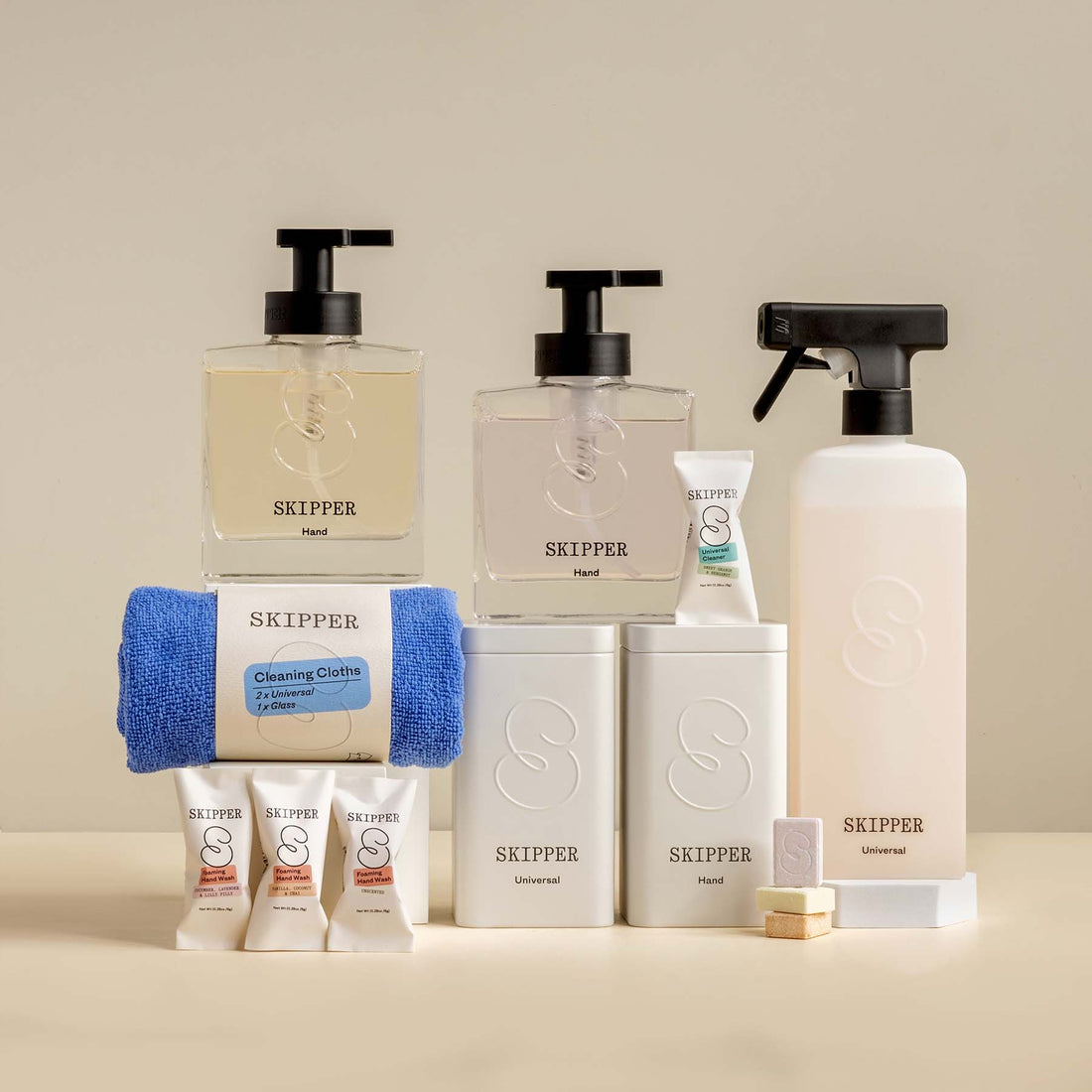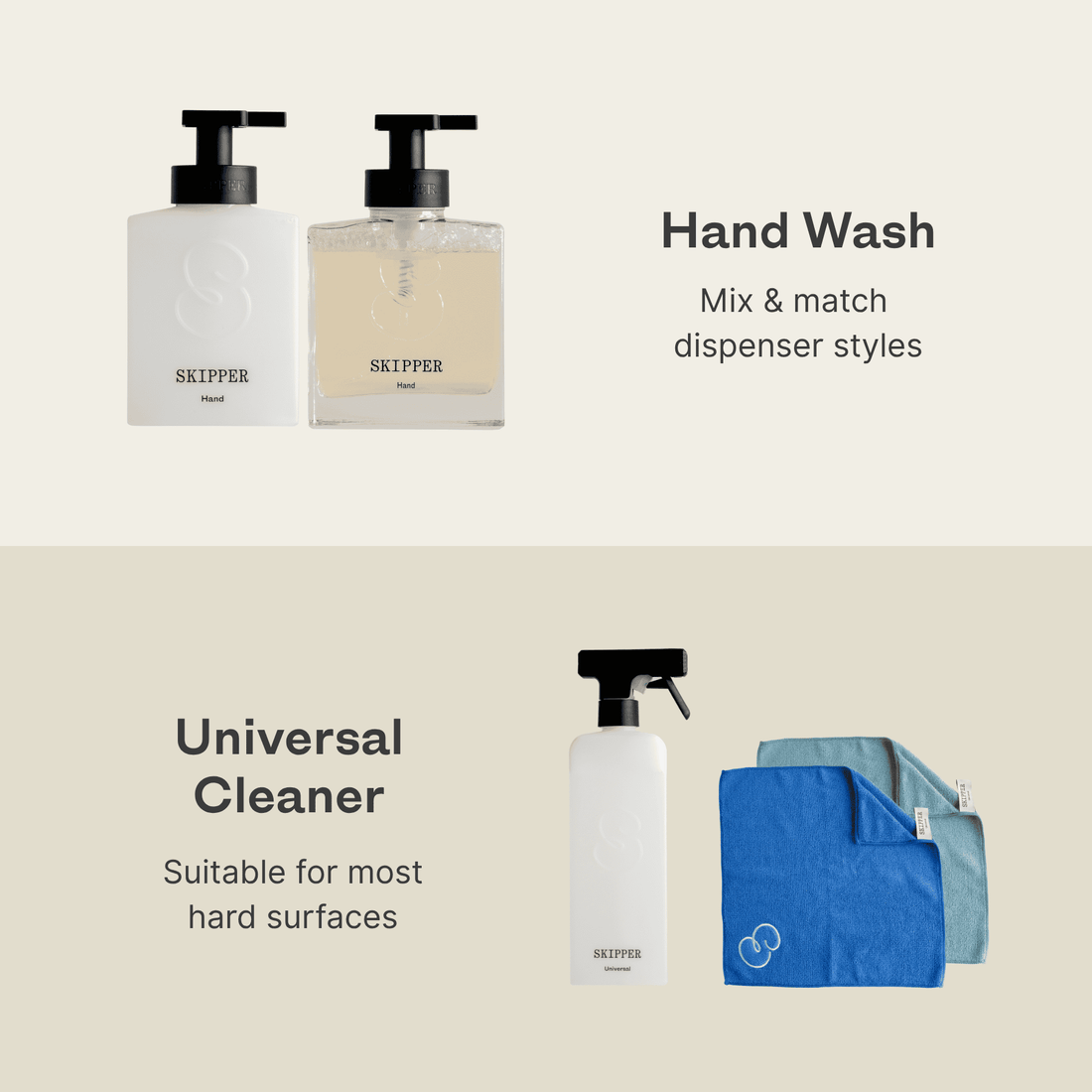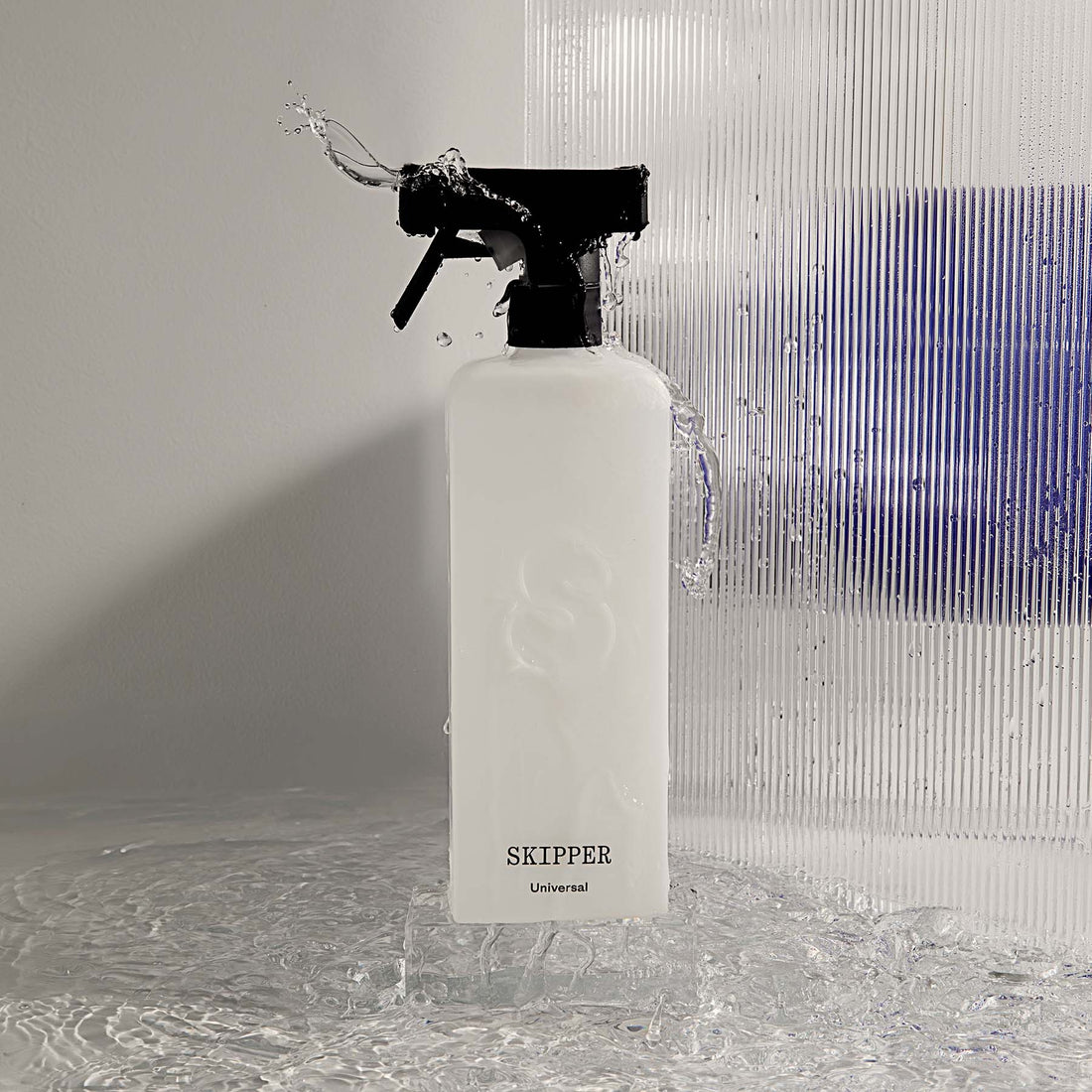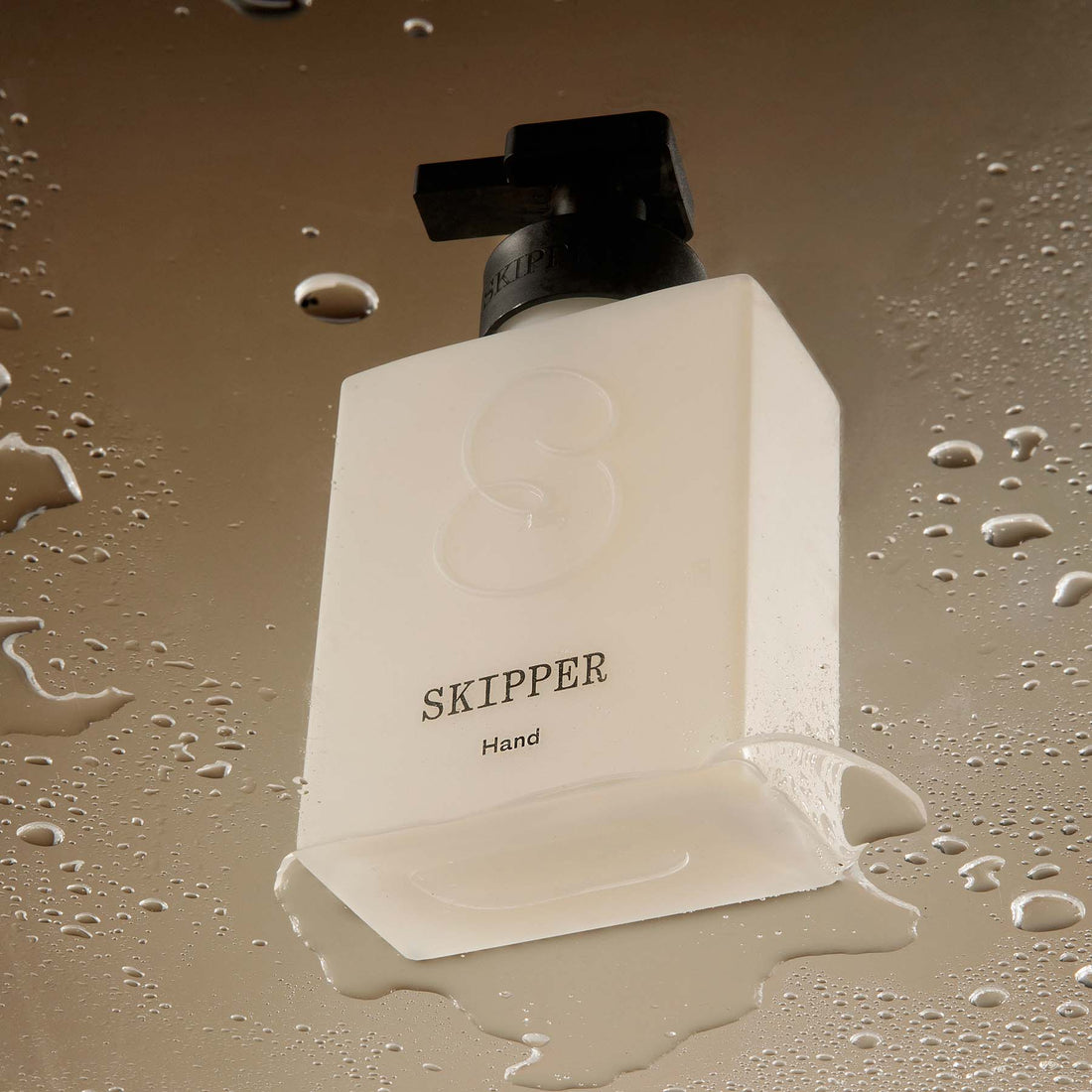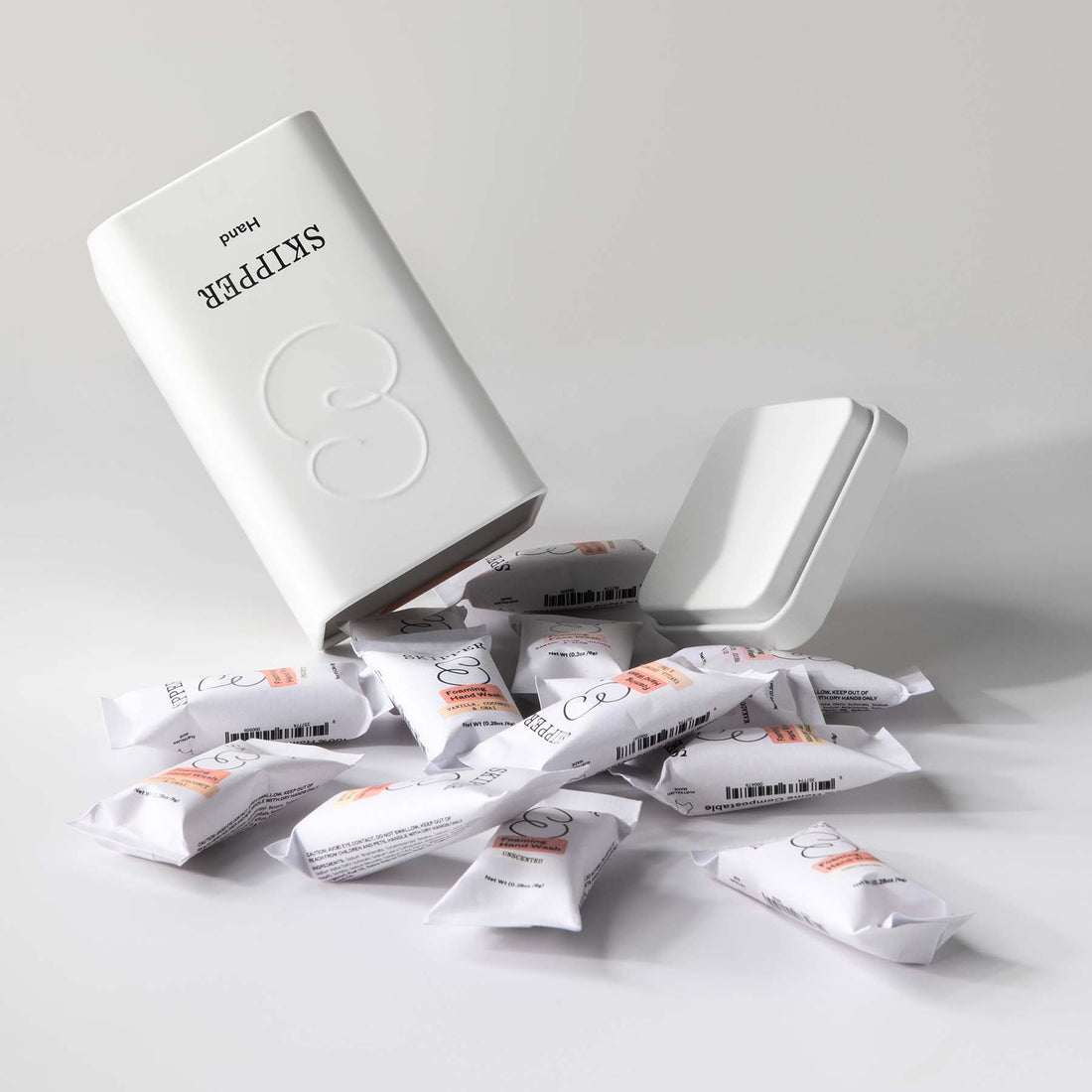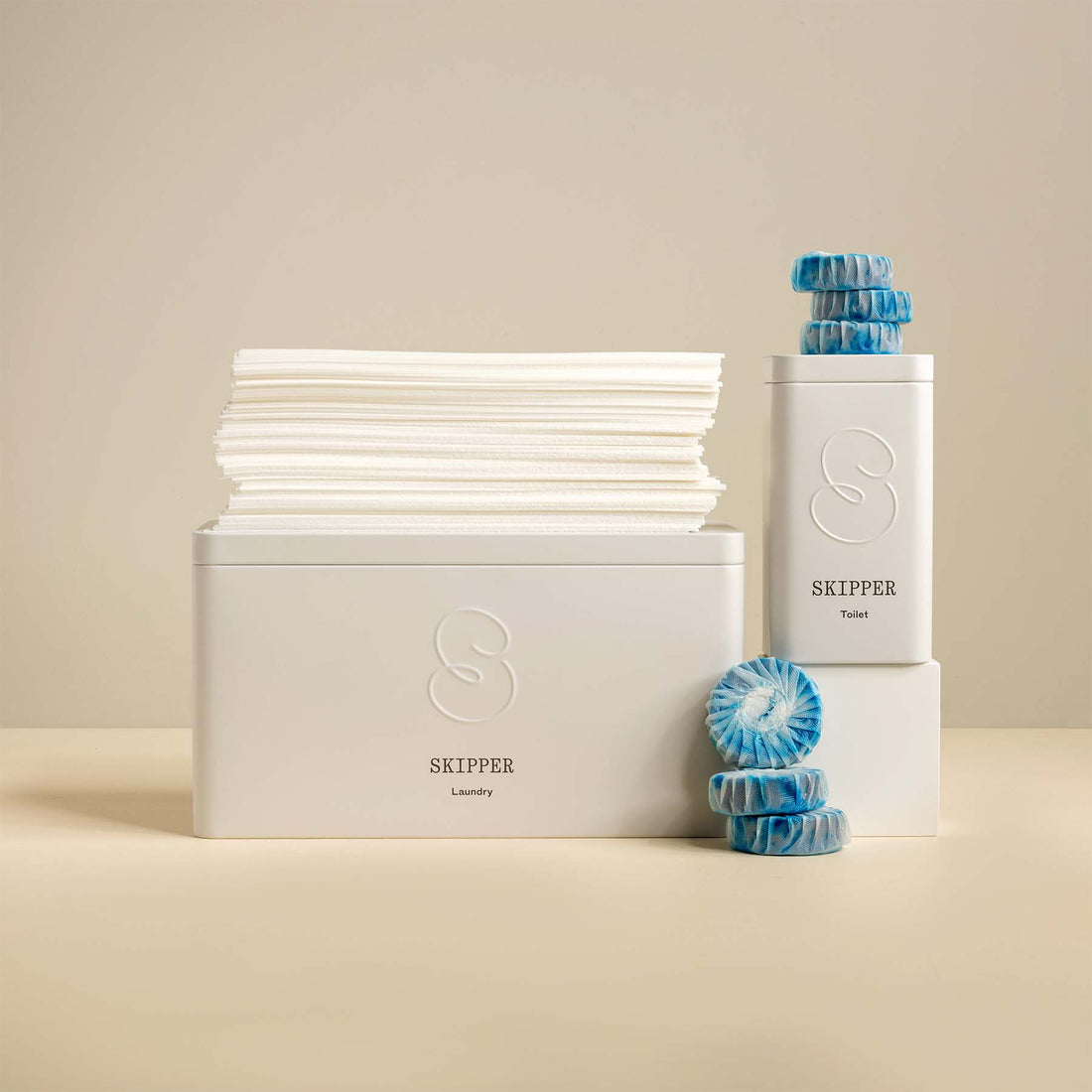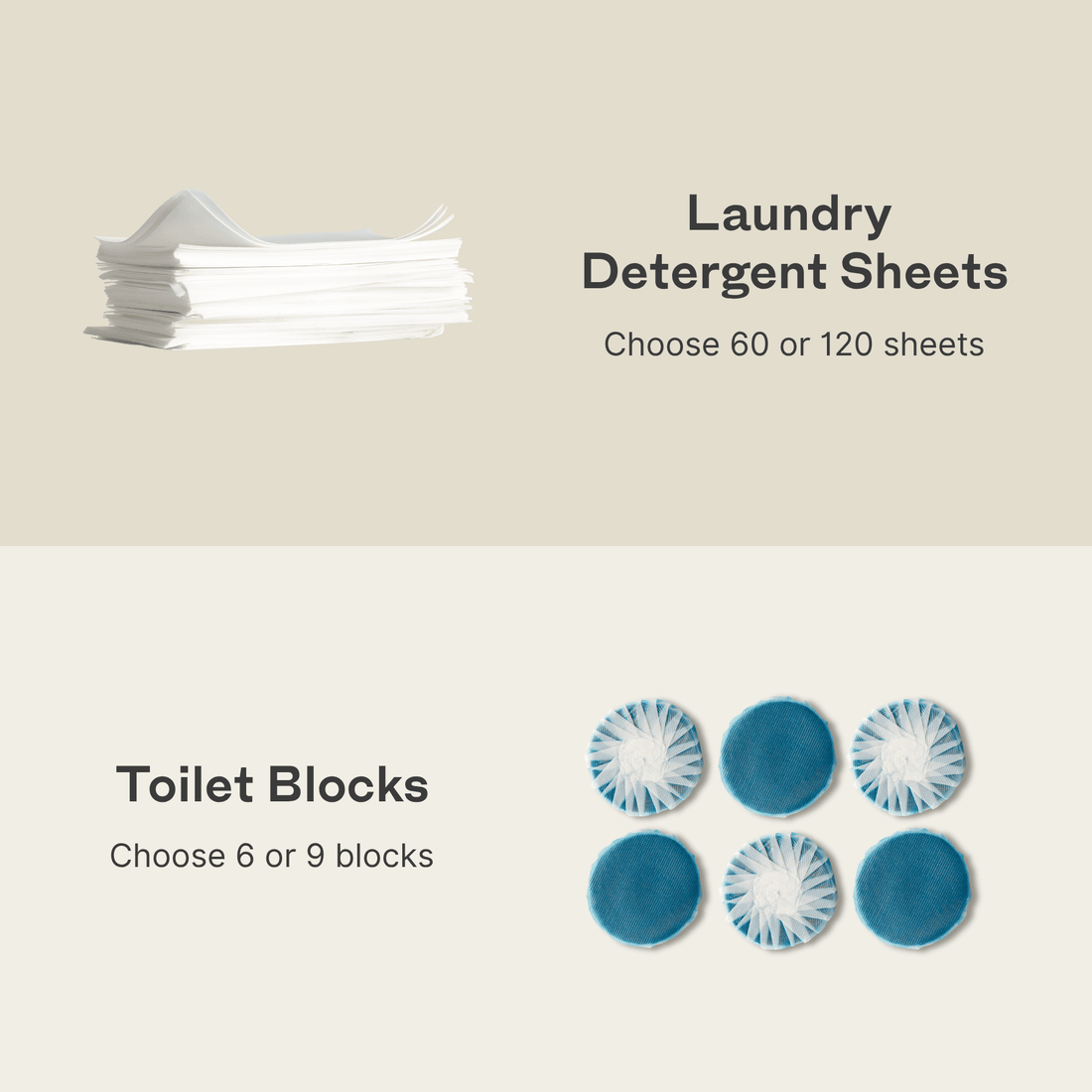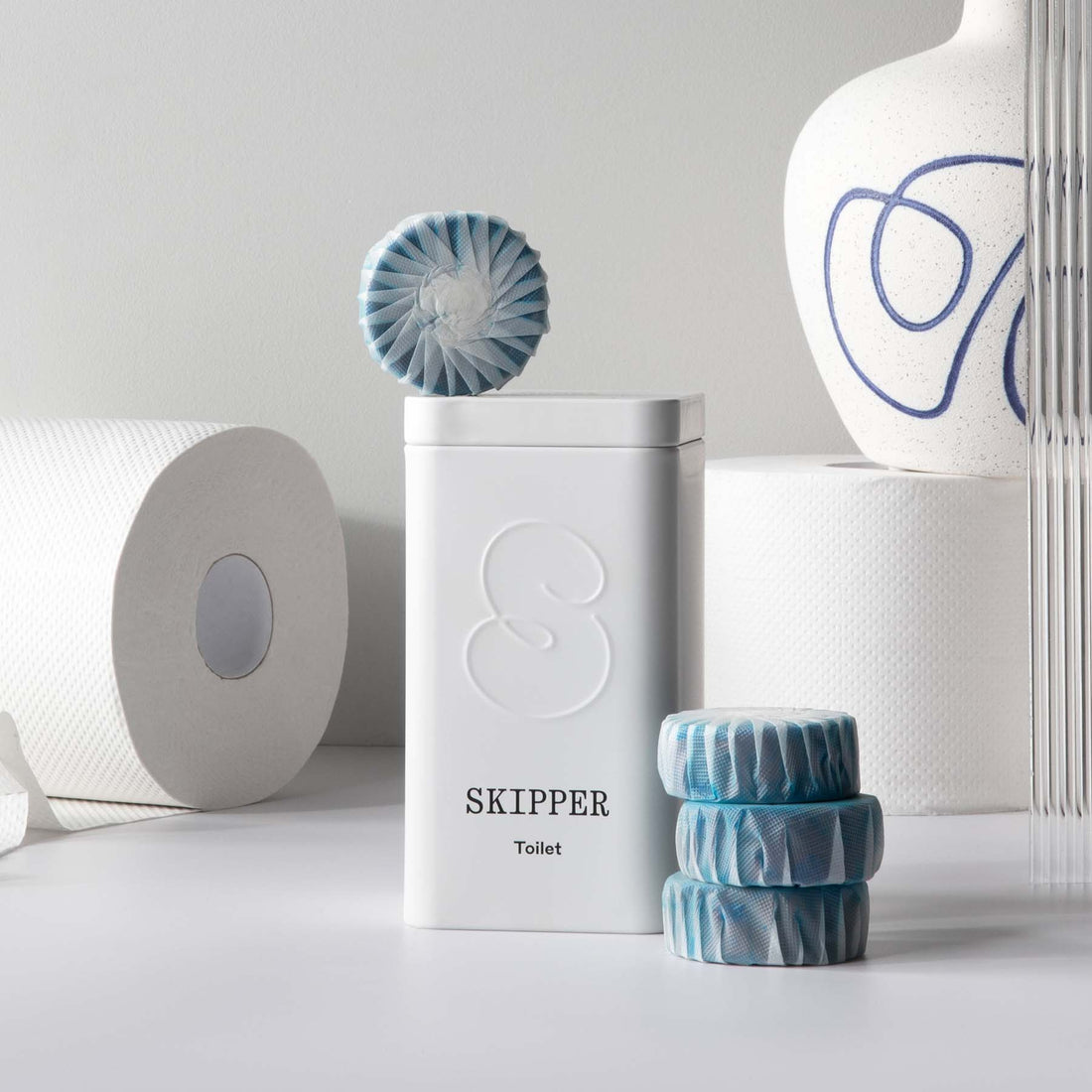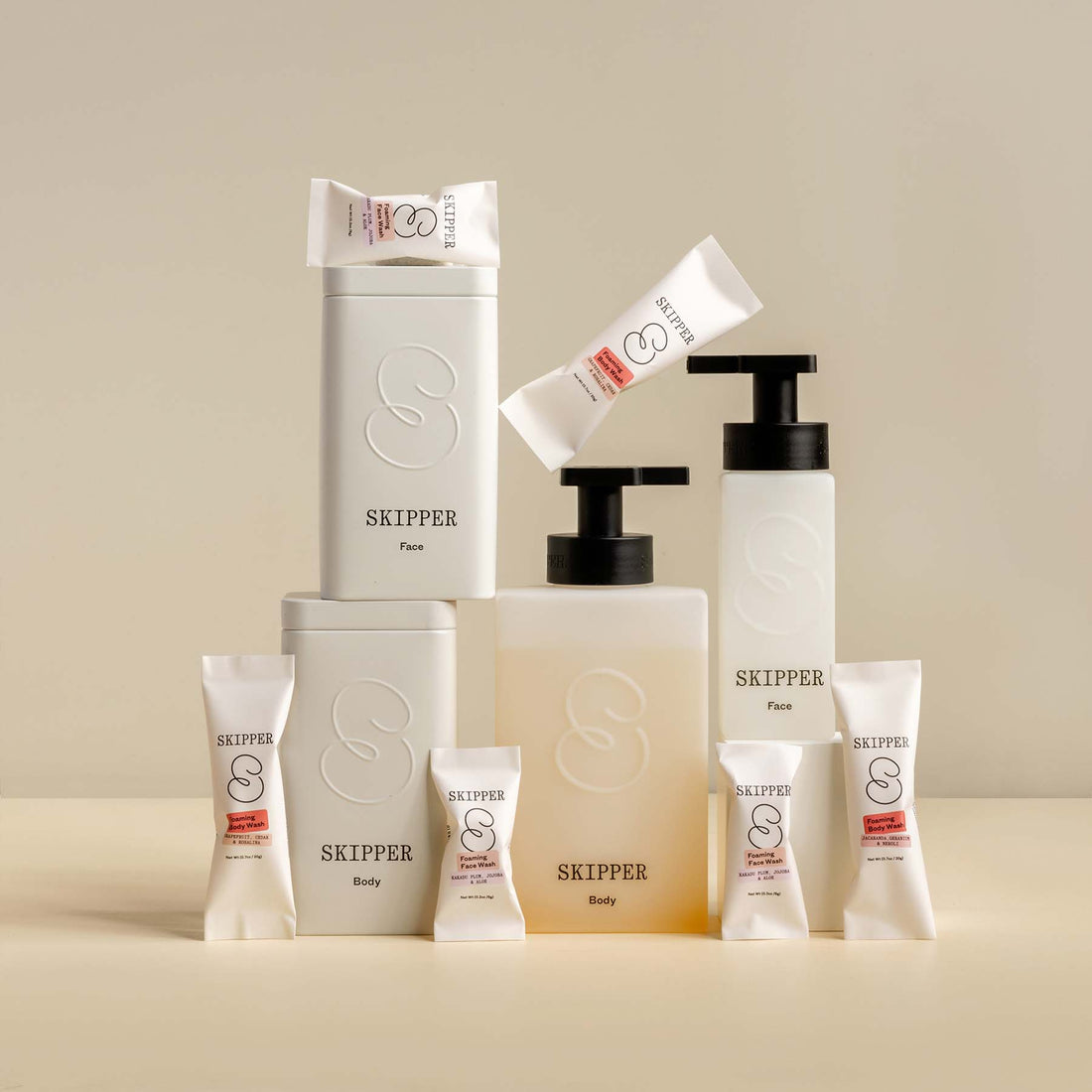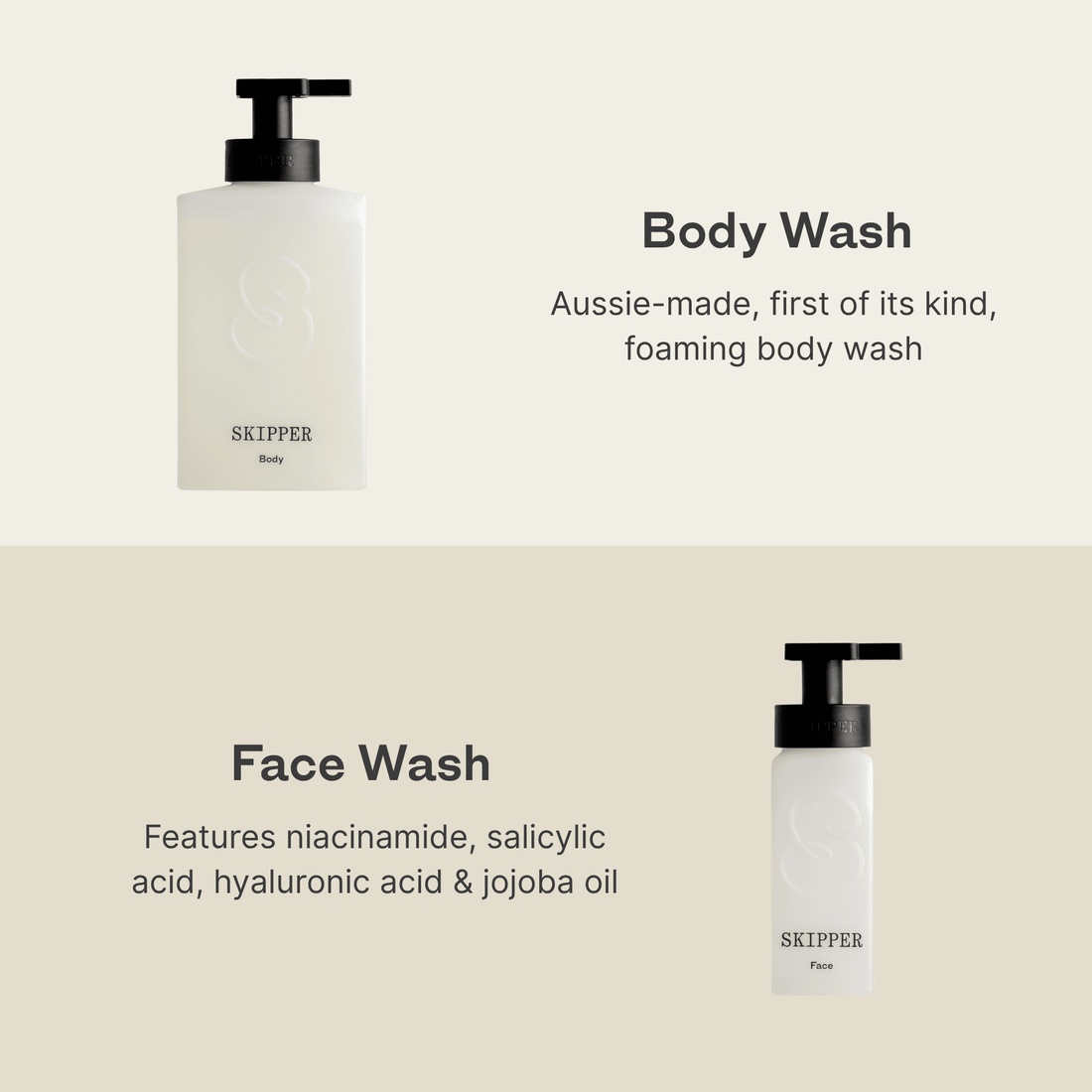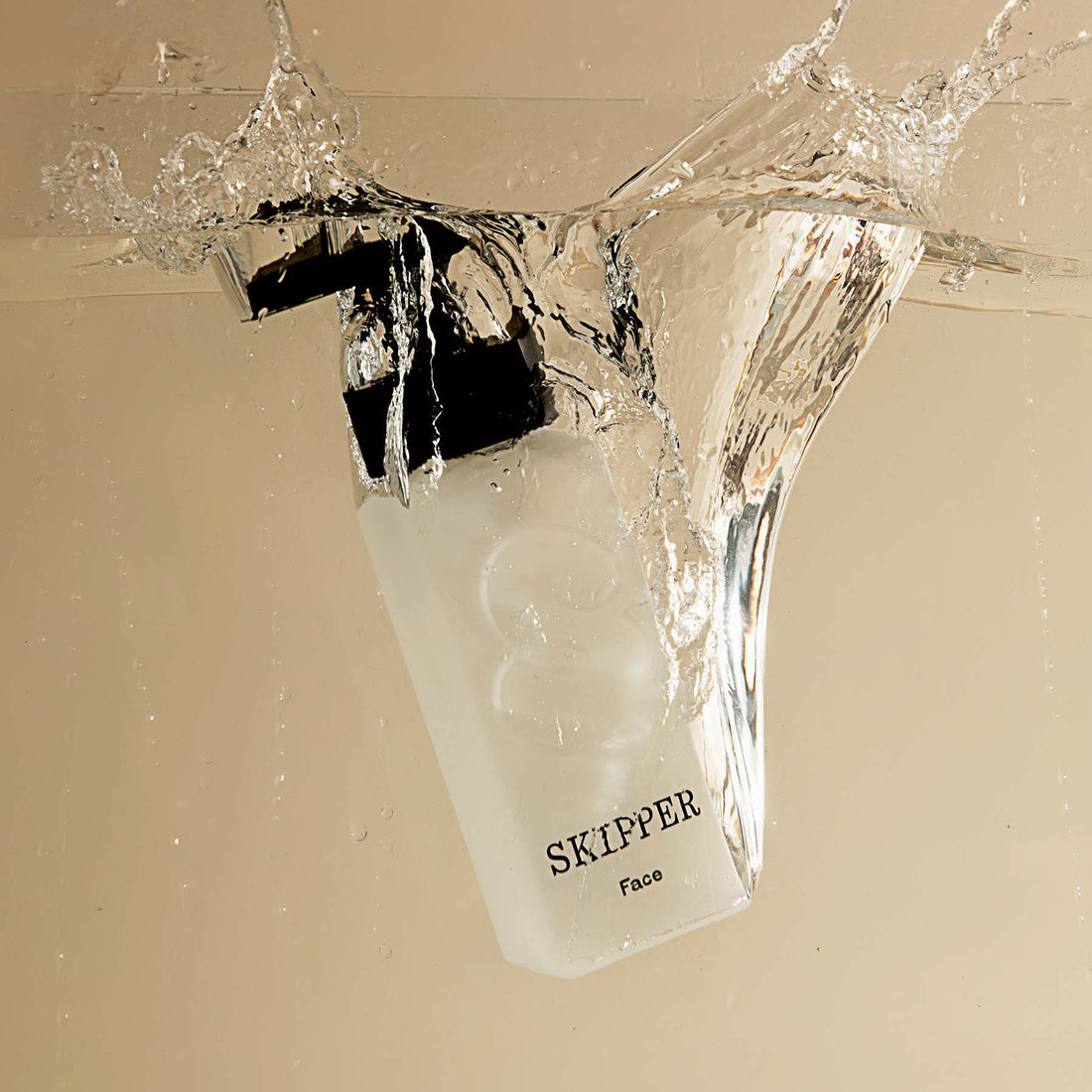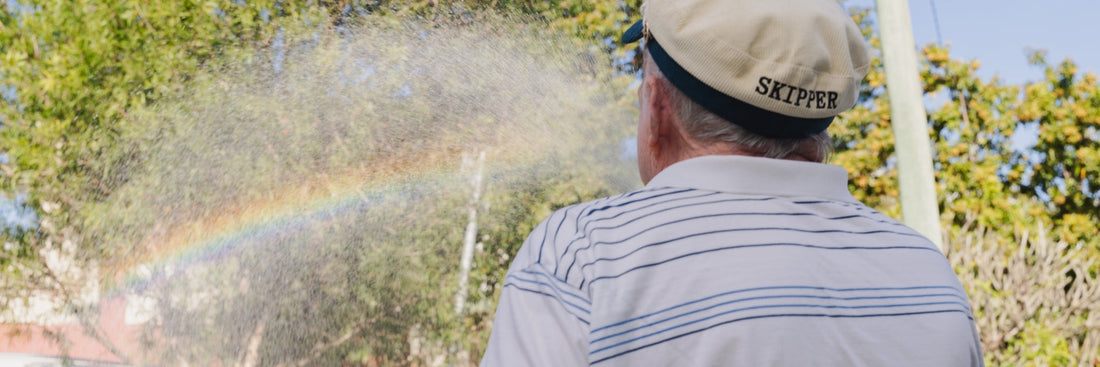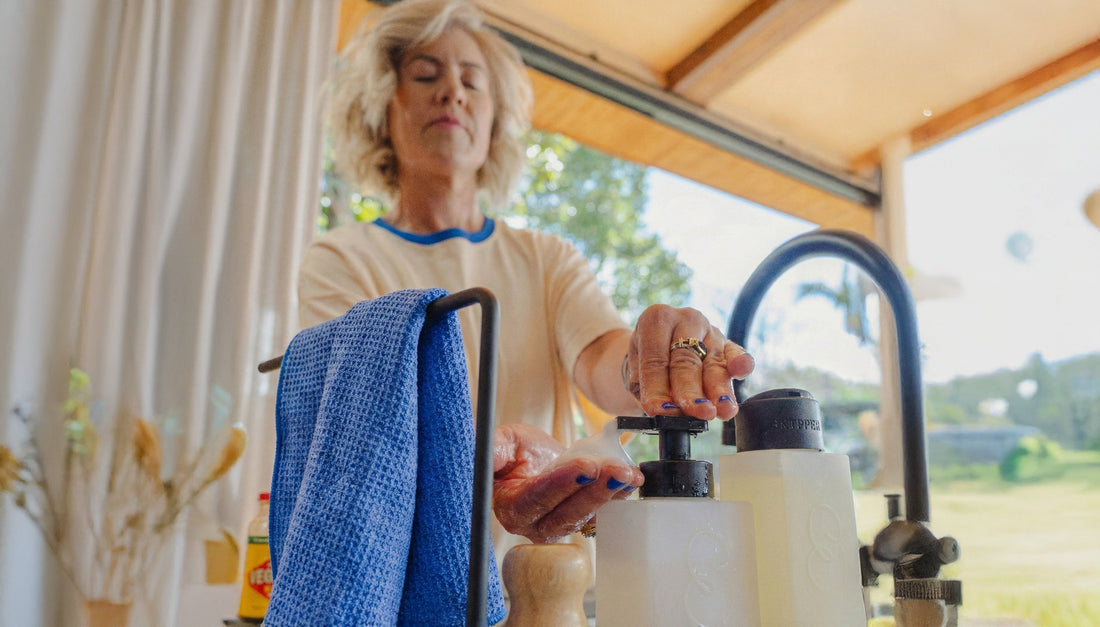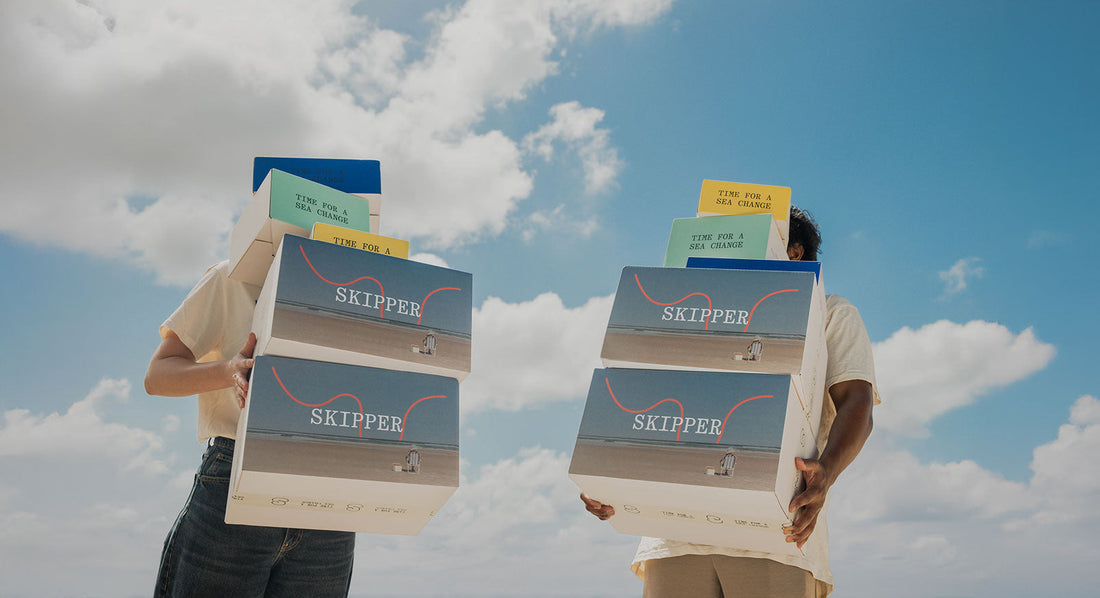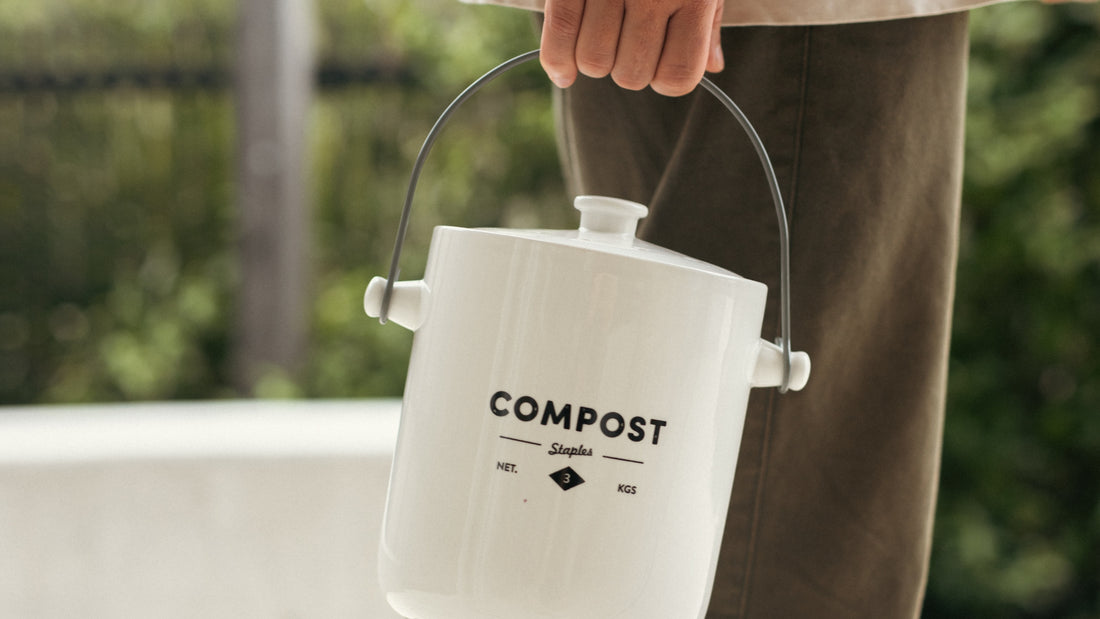What we’re talking about
-
B Corp certification helps businesses market themselves, but there’s little proof it helps the planet.
-
Dubious brands like Princess Polly, Nespresso, and Unilever Australia hold the badge.
-
Even leaders like Dr. Bronner’s walked away, calling it compromised.
-
We’ll never apply. We’re an A-Corp: products, people, and policy designed from Day 0 to do good.
A Note of Respect
We know there are many brilliant and genuinely values-driven brands in the B Corp community, and this is not about them. Our critique is aimed at the system itself: the limits of third-party certification as a fix for market failure, the way multinationals use it for impact window-dressing, and the structural conflicts that come from B Lab operating as a pay-to-play provider.
Where this conversation came from:
We often get asked: “Why isn’t Skipper a B Corp?”
Our response? Why settle for a B when you can be an A?
It’s cheeky, but we mean it. At Skipper, we believe in being the best. From day zero, we designed this business to prove that companies can be a force for good, not just profit machines with a green badge bolted on.
What Is B Corp Certification?
B Corp certification, administered by B Lab, was launched to measure businesses on more than profit. Companies must score 80+ points on the B Impact Assessment across governance, workers, community, environment, and customers, and then recertify every three years.
The idea was to give consumers a clear signal: these are the good guys. Many B Corps genuinely live up to that promise. But the cracks in the system are widening.
Why B Corp Certification Is Flawed
The biggest flaw? The points-based system. Companies could fail dismally on climate but still pass by scoring elsewhere. You could pollute rivers yet get certified for office recycling.
The process relies heavily on self-reporting, with only limited external checks. Scholars have flagged this as a breeding ground for misreporting. And since B Lab also collects annual fees (between $500 and $50,000+), critics argue it creates a pay-to-play dynamic.
That’s why many now see B Corp certification as more marketing theatre than meaningful transformation.
Who Benefits from Being a B Corp?
The Business Itself
There’s no denying that certification helps companies. Research shows that between 2019 and 2022, 76% of B Corps grew revenue compared to 60% of non-certified peers, and 95% survived downturns, versus 88% of others (B Lab UK, MDPI Journal). Certification also boosts brand reputation, investor confidence, and employee pride, what academics call “non-financial strategic results” (LSE Research).
In short, the badge is valuable marketing currency. It helps businesses attract customers, talent, and capital.
Who Doesn’t Benefit?
People and the Planet
The harder truth: there’s little independent evidence that the B Corp logo translates into better outcomes for society or the environment.
A Business Initiative study found B Corps only outperformed peers in around 14% of sustainability categories. A 2019 literature review concluded that voluntary schemes like B Corp can create a “grey zone for greenwashing.” And researchers at SOAS University went further, describing B Corp as “an advanced version of greenwashing that reassures consumers while leaving the underlying economic model intact.”
Yes, some studies suggest certification can encourage more socially responsible behaviour and improve company reputation. But when it comes to consistent, measurable impact for people and planet, the evidence is thin.
That means while businesses may benefit financially and reputationally, the world doesn’t always see proportional gains.
Examples: Dubious Companies With B Corp Status
Let’s run the pub test.

-
Nespresso: Certified in 2022 despite Channel 4 footage of child labour on Guatemalan farms.
-
Princess Polly: Fast fashion, 150+ new items weekly, certified in 2025. Academics called this an “oxymoron.”
-
Unilever Australia: Certified while its parent is thought to have churned out 53 billion unrecyclable plastic sachets in 2023.
If these pass, what does the logo really guarantee?

The 2026 B Lab Standards Reform
Facing pressure, B Lab is revamping B Corp certification in 2026:
-
Scrapping the 80-point system
-
Requiring minimum standards across seven Impact Topics (climate, human rights, fair work, etc.)
-
Introducing independent third-party assurance providers
Phased compliance checkpoints at Year 0, 3, and 5
These are improvements, but critics argue they’re still “window dressing on a broken system”.
How EU Regulation Forced Change
Here’s the kicker: these reforms weren’t voluntary. They were forced by the EU.
From September 2026, the Empowering Consumers for the Green Transition Directive (ECGT) will make it illegal to use sustainability labels that lack independent monitoring. The Corporate Sustainability Reporting Directive (CSRD) is also mandating audited ESG reports from nearly 50,000 companies.
Without reform, B Corp labels could have been banned in Europe. So B Lab had no choice but to adapt.
Why Companies Are Leaving B Corp
The biggest warning sign? The defections.
-
Dr. Bronner’s, the highest-scoring B Corp ever (206.7 points), quit in 2025, saying the system’s integrity was compromised
-
UK pet-food brand Scrumbles exited, calling B Corp “a marketing badge,” and donated their fee to charity
-
LAUDE the Label left too, saying B Corp is no longer the gold standard
When the most values-driven players walk away, it speaks volumes.
Why Regulation Beats Certification
History shows that government regulation works where voluntary systems fail:
-
The EU CSRD enforces audited reporting with €10M penalties
-
The Sarbanes-Oxley Act ended self-regulation in US finance, slashing fraud
-
A 2025 study found mandatory ESG disclosure reduces greenwashing, while voluntary systems had no measurable effect
Laws with teeth beat stickers with vibes.
Skipper: Built to Be an A-Corp
At Skipper, we didn’t retrofit purpose, we baked it in from Day 0. We didn’t start with a product or service, our founding principle was simple: prove that business can be used as a force for good. Every idea, every model, every product was and is judged through that lens.
It’s why we’ve built:
-
Radically innovative products that prevent waste before it happens, plus upcycled plastic products that clean up the mess already made
-
An educated, inspiring community of Skippers (customers, staff, suppliers) who are tackling waste together across every front
-
Policy advocacy for systemic change, from Extended Producer Responsibility to stronger regulation that holds every company accountable
That’s why we call ourselves an A-Corp. Not because it’s a certification, but because it’s a commitment.
Conclusion: Why We’re Not B Corp
B Corp deserves credit for sparking debate about better business. But with dubious companies in, genuine ones out, and reforms driven by EU law, the cracks are too big to ignore.
At Skipper, we’ll never apply. Not because we don’t care, but because we care more.
We’ll keep building products that skip waste, backing our people, and campaigning for policy that creates real accountability.
Because why settle for a B when you can be an A?

































